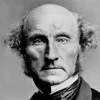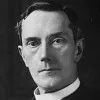When one admits that nothing is certain one must, I think, also admit that some things are much more nearly certain than others. It is much more nearly certain that we are assembled here tonight than it is that this or that political party is in the right. Certainly there are degrees of certainty, and one should be very careful to emphasize that fact, because otherwise one is landed in an utter skepticism, and complete skepticism would, of course, be totally barren and completely useless.
Bertrand Russell (1872-1970) English mathematician and philosopher
“Am I an Atheist or an Agnostic?” sec. “Skepticism” (1949)
(Source)
Originally given as a speech, "Agnosticism v. Atheism," Rationalist Press Assoc. Annual Dinner, London (1949-05-20); then printed as "Agnosticism v. Atheism," The Literary Guide and Rationalist Review (1949-07); then released as an essay under this title later in 1949.
Quotations about:
likelihood
Note not all quotations have been tagged, so Search may find additional quotes on this topic.
There is no such thing as absolute certainty, but there is assurance sufficient for the purposes of human life.
John Stuart Mill (1806-1873) English philosopher and economist
On Liberty, ch. 2 “Of the Liberty of Thought and Discussion” (1959)
(Source)
Mill is actually describing an argument he goes on to counter.
There are inquiries in which scanty evidence is worth using. We may not be able to get certainty, but we can get probability, and half a loaf is better than no bread.
C. S. Lewis (1898-1963) English writer, literary scholar, lay theologian [Clive Staples Lewis]
“Historicism,” The Month (1950-10)
(Source)
Regarding historical inquiry based on incomplete evidence. First reprinted in Christian Reflections (1967).
Things never turn out either so well or so badly as they logically ought to do.
William Ralph Inge (1860-1954) English prelate [Dean Inge]
“The Future of the English Race,” Galton Lecture (1919), Outspoken Essays: First Series (1920)
(Source)
And this actually makes sense, in the way Agathon puts it: “As you might expect, many improbable things do happen.”
[ἔστιν δὲ τοῦτο καὶ εἰκὸς ὥσπερ Ἀγάθων λέγει, εἰκὸς γὰρ γίνεσθαι πολλὰ καὶ παρὰ τὸ εἰκός.]
Aristotle (384-322 BC) Greek philosopher
Poetics [Περὶ ποιητικῆς, De Poetica], ch. 18 / 1456a (c. 335 BC) [tr. Whalley (1997)]
(Source)
Original Greek. Alternate translations:Such an event is probable in Agathon’s sense of the word: "It is probable," he says, "that many things should happen contrary to probability."
[tr. Butcher (1895)]This is probable, however, only in Agathon's sense, when he speaks of the probability of even improbabilities coming to pass.
[tr. Bywater (1909)]And there is a probability about such a results, for, as Agathon says, the improbable has a tendency to occur.
[tr. Margoliouth (1911)]And this, as Agathon says, is a likely result, since it is likely that many quite unlikely things should happen.
[tr. Fyfe (1932)]This is even probable, as Agathon says; for it is probable that many things will happen even against probability.
[tr. Janko (1987), sec. 4.3.7]And this actually makes sense, in the way Agathon puts it: "As you might expect, many improbable things do happen."
[tr. Whalley (1997)]And this is even likely in the sense in which Agathon speaks of it, since it is likely that many things happen contrary to what is likely.
[tr. Sachs (2006)]This is not improbable, since, as Agathon remarks, it is probable that many improbable things should happen.
[tr. Kenny (2013)]
I have argued flying saucers with lots of people. … I was interested in this: they keep arguing that it is possible. And that’s true. It is possible. They do not appreciate that the problem is not to demonstrate whether it’s possible or not, but whether it’s going on or not. Whether it’s probably occurring or not, not whether it could occur.
The laws of probability, so true in general, so fallacious in particular.







